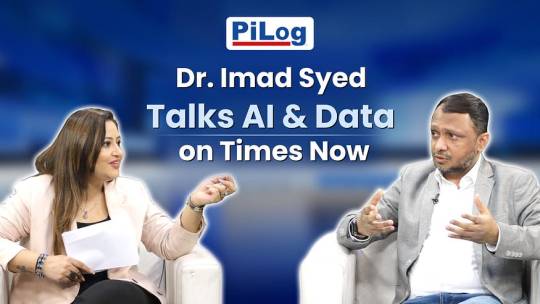#dataprivacy
Explore tagged Tumblr posts
Text
Hey friends, come follow us on Mastodon @[email protected]! We post a lot of content there, and Ariel is a lot more active with replies over there (usually….).
#Mastodon#Fediverse#ClimateJustice#SolarpunkPresentsPodcast#solarpunk#podcast#podcasting#SocialMedia#Privacy#DataPrivacy#FederatedInstances#federation#DataHarvesting#FacebookAlternative#MetaAlternative#ActivityPub
12 notes
·
View notes
Text
Privacy Concerns: How Gen Z is Protecting Their Data?
What’s the first thing you do when a pop-up asks, “Do you accept cookies?”—immediately click “Accept” or hesitate as if pondering the secrets of the universe?
If you’re Gen Z, the answer might surprise you. While they’re often labelled as the oversharing Snapchat generation, they’re also becoming the poster children for digital privacy warriors. Want to know how? Stick around. By the end of this blog, you’ll not only uncover Gen Z’s surprising strategies for safeguarding their data but also pick up a few tips to reclaim control of your own.

The Paradox of Gen Z: Masters of Oversharing, Yet Privacy-Conscious
On the surface, Gen Z seems like the generation that lives for Instagram reels, TikTok challenges, and viral tweets. But underneath the filters and hashtags lies a surprising truth: they care—deeply—about their digital footprints. They may post a dance video on TikTok but won’t hesitate to use pseudonyms on Facebook or create private Instagram accounts (finstas) to keep their personal lives personal.

How Did Gen Z Get So Privacy-Savvy?
Growing Up With Data Breaches
From hearing about massive breaches (remember the infamous Cambridge Analytica scandal?) to watching documentaries like The Social Dilemma, Gen Z grew up knowing that even their memes could fuel someone’s data-mining empire. Lesson learned? Share strategically.

Cybersecurity 101 Is Their Second Nature
For this generation, two-factor authentication isn’t optional—it’s a lifestyle. “123456” as a password? Please, that’s so 2010. Gen Z knows their passwords should look like they smashed their keyboard in frustration.

Tech Education in Schools
Unlike older generations, who stumbled their way through the internet’s dark corners, Gen Z often received digital literacy education. They know the difference between a phishing scam and an actual email from their bank. (Pro tip: If it starts with “Dear Customer,” run.)

Privacy Tips We Can All Steal (Ethically, of Course)
Gen Z is showing us the way, and here are some of their best practices:
Think Before You Link
Clicking on that shady “You’ve Won a Free iPhone!” ad is the digital equivalent of walking into a trap. Gen Z gets it—they avoid suspicious links like the plague.

Limit Permissions
Why should a weather app need access to your contacts? Gen Z regularly audits app permissions, keeping unnecessary snoopers at bay.

Use Burners for Fun
They know that creating a “throwaway” email address for subscriptions keeps spam out of their primary inbox.

The Ironic Humor of Gen Z’s Privacy Stance
Isn’t it ironic that the generation branded as addicted to screens is leading the charge for digital privacy? They’ll meme about data breaches but won’t let companies snoop on their Spotify playlists.

Conclusion: A Balancing Act
Gen Z proves you can live your best digital life and protect your data. Whether it’s using VPNs, switching to encrypted messaging apps, or simply saying no to invasive permissions, they’re rewriting the rules for online privacy.
The takeaway? Protecting your data doesn’t mean going off the grid; it means being intentional with your digital choices.

Do you think Gen Z has cracked the code on balancing online presence and privacy, or are they just lucky digital natives? Drop your thoughts in the comments below!

6 notes
·
View notes
Text
WhatsApp Uncovers Paragon Spyware Campaign Across 24+ Countries

Meta's WhatsApp has revealed that Paragon Solutions, an Israeli spyware company, targeted approximately 90 users—including journalists and civil society members—across more than two dozen countries. The spyware, known as Graphite, was deployed through "zero-click" attacks, allowing it to infiltrate devices without any user interaction.
Details of the Attack
The targeted individuals received notifications from WhatsApp confirming their inclusion in the attack. The spyware's "zero-click" attack methodology means that the targets did not need to interact with malicious content to be compromised. Graphite allows extensive access to infected devices, including reading encrypted messages.
Paragon Solutions' Background
Paragon Solutions, an Israeli firm, has previously marketed its spyware as ethical, claiming to sell only to stable democratic governments. However, this incident raises concerns about the company's practices and the potential misuse of its technology.
WhatsApp's Response
In response to the attack, WhatsApp issued a cease-and-desist letter to Paragon Solutions and disrupted the hacking effort. The incident has been reported to law enforcement and Citizen Lab, a Canadian internet watchdog.
Implications for Privacy and Security
This incident underscores the ongoing challenges in protecting user privacy and security against sophisticated spyware attacks. It highlights the need for robust security measures and accountability in the commercial spyware industry.
4 notes
·
View notes
Text
Artificial Intelligence in Digital Marketing: Definition and Tools

AI in digital marketing refers to employing intelligent technologies to enhance how businesses engage with and sell to their customers. Assists with data management, automation, customization, and refinement of campaigns. But what exactly does AI do in marketing? It uses machine learning, data analysis, and natural language processing to perform tasks faster and more accurately than humans.
Many make use of AI to simplify marketing. Customer service chatbots respond to clients in seconds. Tools using predictive analytics make it easier for businesses to grasp future shifts. Some programs are capable of generating content for blogs, emails, and even product descriptions. Messages intended for particular customers can be tailored through personalization platforms, making them more appealing. Marketing automation tools streamline tedious processes such as email dispatching and advertising, thereby cutting down on time and effort.
AI enhances digital ads as well. It modifies cost-per-click bids, targets audiences, and adjusts creatives simultaneously in order for businesses to derive the most benefit. Sentiment analysis tools automatically filter and analyze social media channels and online reviews to assess client’s’ perceptions. Customer segmentation tools analyze persona’s behavior to aggregate them into more manageable groups, thus enhancing campaign efficiency.
What are the advantages? AI saves labor in completing repetitive tasks. It provides businesses with comprehensive insights, assisting in making better decisions. It delivers content at scale and enhances the customer experience by providing tailored suggestions. It even has the capacity to determine trends, which is advantageous for businesses.
AI can, however, contain imperfections. If an algorithm is trained using biased data, it may contain biases. Misinformation in AI-generated content can lead to erroneous information being disseminated to customers. There are issues of privacy and security with a significant amount of data. Some people are concerned with the issue of transparency—who owns the content generated by AI?
AI is evolving in digital marketing, creating new opportunities and difficulties at the same time. To remain relevant in today's society, engaging with professionals is the best way to go. PLUS27digital specializes in AI-based marketing strategy development that deliver incredible outcomes. Would you like to learn how AI could improve your business? Let's have a discussion.
#AI#ArtificialIntelligence#DigitalMarketing#MarketingTech#MachineLearning#NLP#MarketingStrategy#MarketingAutomation#BusinessGrowth#Chatbots#PredictiveAnalytics#Personalization#DataAnalytics#ContentMarketing#AdOptimization#CustomerInsights#AIForBusiness#MarketingInnovation#SmartMarketing#AIContent#AISEO#DigitalTransformation#MarketingTrends#DataPrivacy#AIEthics#OnlineMarketing#SocialMediaMarketing#SEO#EcommerceMarketing#StartupMarketing
2 notes
·
View notes
Text
O&O SafeErase 19
Say goodbye to data recovery risks. Whether it's personal files, browser history, or an entire hard drive, this tool uses advanced algorithms to protect your privacy.

4 notes
·
View notes
Text
Title: Are We Truly Free in a World Obsessed with Our Data?

A few years ago, I realised that my phone knew my desires better than I did. This isn’t an exaggeration. Every notification, every recommendation seemed perfectly timed. But how? The answer is simple: my data, constantly collected, was feeding invisible algorithms.
This reality disturbed me for a long time. Not just because I hate the idea of being watched, but because I wondered: if my choices are influenced by algorithms, am I still free?
A World of Data, A World of Control?
We live in an era where our data is extracted and monetised by companies we often don’t even know exist. Yes, we’re aware that Google and Facebook collect our information. But few people know about data brokers – these companies that buy, analyse, and resell our digital lives.
Shoshana Zuboff, in The Age of Surveillance Capitalism, describes this phenomenon as a new form of power. She argues that our behaviour has become a raw material, extracted and exploited to anticipate our actions and influence our decisions. What struck me most in her analysis is the idea that digital surveillance is no longer just a tool, but an entire economy.
Can We Talk About Freedom When Everything Is Anticipated?
I grew up believing that freedom meant having choices. But today, every choice I make online is guided by algorithms. When Spotify recommends a song, is it my personal taste or a machine that analysed my past listens? When Netflix suggests a film, is it a free choice or a calculated suggestion designed to keep me on the platform longer?
Byung-Chul Han, a contemporary philosopher, criticises this society of transparency where everything must be visible, measurable, and exploitable. He writes that in this quest for data, we lose our opacity – that space where our individuality could exist without constant scrutiny. And without that opacity, freedom becomes an illusion.
Why Should We Care?
Many might say, “I have nothing to hide, so it doesn’t matter.” But it’s not just about privacy. It’s about control. Every piece of data collected is another brick in a structure where our behaviours are predicted, influenced, and sometimes manipulated.
When data brokers sell our information to advertisers, it’s not just to show us an ad for shoes. It’s to shape our digital environment so that we buy those shoes. Or worse, to influence our political opinions, our relationships, or even our ambitions.
Where Are We Headed?
What troubles me most is how normal this data collection has become. We accept cookies without thinking. We give apps access to our contacts, location, and photos simply because they ask for it. And each time we do, we give away a little more of our freedom.
But not all is lost. The first step is to understand this system. The second is to act. My Medium article dives deeper into how our data is extracted and sold – but more importantly, what it means for our freedom. Because in the end, the question is simple: do we really want to live in a world where our choices are no longer truly ours?
Read the full article here
#DataPrivacy#SurveillanceCapitalism#DigitalFreedom#PhilosophyOfTechnology#ByungChulHan#ShoshanaZuboff#DataBrokers#OnlinePrivacy#TechEthics#DigitalSurveillance#FreedomOfChoice#PrivacyMatters#DigitalControl#AlgorithmicBias#TechPhilosophy#MediumWriters#DataExtraction#TumblrWriters#InternetFreedom
2 notes
·
View notes
Text
How Dr. Imad Syed Transformed PiLog Group into a Digital Transformation Leader?
The digital age demands leaders who don’t just adapt but drive transformation. One such visionary is Dr. Imad Syed, who recently shared his incredible journey and PiLog Group’s path to success in an exclusive interview on Times Now.

In this inspiring conversation, Dr. Syed reflects on the milestones, challenges, and innovative strategies that have positioned PiLog Group as a global leader in data management and digital transformation.
The Journey of a Visionary:
From humble beginnings to spearheading PiLog’s global expansion, Dr. Syed’s story is a testament to resilience and innovation. His leadership has not only redefined PiLog but has also influenced industries worldwide, especially in domains like data governance, SaaS solutions, and AI-driven analytics.
PiLog’s Success: A Benchmark in Digital Transformation:
Under Dr. Syed’s guidance, PiLog has become synonymous with pioneering Lean Data Governance SaaS solutions. Their focus on data integrity and process automation has helped businesses achieve operational excellence. PiLog’s services are trusted by industries such as oil and gas, manufacturing, energy, utilities & nuclear and many more.
Key Insights from the Interview:
In the interview, Dr. Syed touches upon:
The importance of data governance in digital transformation.
How PiLog’s solutions empower organizations to streamline operations.
His philosophy of continuous learning and innovation.
A Must-Watch for Industry Leaders:
If you’re a business leader or tech enthusiast, this interview is packed with actionable insights that can transform your understanding of digital innovation.
👉 Watch the full interview here:
youtube
The Global Impact of PiLog Group:
PiLog’s success story resonates globally, serving clients across Africa, the USA, EU, Gulf countries, and beyond. Their ability to adapt and innovate makes them a case study in leveraging digital transformation for competitive advantage.
Join the Conversation:
What’s your take on the future of data governance and digital transformation? Share your thoughts and experiences in the comments below.
#datamanagement#data governance#data analysis#data analytics#data scientist#big data#dataengineering#dataprivacy#data centers#datadriven#data#businesssolutions#techinnovation#businessgrowth#businessautomation#digital transformation#piloggroup#drimadsyed#timesnowinterview#datascience#artificialintelligence#bigdata#datadrivendecisions#Youtube
3 notes
·
View notes
Text
Niantic is building a ‘geospatial’ AI model based on Pokémon Go player data
Scans of the world from Pokemon Go and Ingress are the backbone of Niantic’s AI model, which aims to navigate the world like ChatGPT spits out text.

youtube
#Tumblr#PokemonGo#Niantic#GeospatialAI#AugmentedReality#DataPrivacy#GamingNews#ArtificialIntelligence#SpatialIntelligence#VPS#MobileGaming#ARTechnology#Youtube
2 notes
·
View notes
Text
"Generative AI and Global Politics: Shaping the Future of Innovation and Climate Action"

One of the most discussed topics today is Generative AI and its growing impact on businesses and society. This isn’t just a technological advancement but a transformation of how industries operate. Companies are increasingly using AI to drive productivity and innovation, reshaping workflows and decision-making processes. However, this trend brings ethical and regulatory challenges, with concerns about how AI might affect jobs, data privacy, and social equity becoming central to the conversation. (read more)
#ArtificialIntelligence#ClimateAction#SustainableFuture#Innovation#TechForGood#GlobalPolitics#COP28#DigitalTransformation#AIethics#ClimateChange#FutureOfWork#DataPrivacy#EmergingTech#EnvironmentalJustice#1950s#3d printing#70s#80s
3 notes
·
View notes
Text
youtube
You Won't Believe How Easy It Is to Implement Ethical AI
#ResponsibleAI#EthicalAI#AIPrinciples#DataPrivacy#AITransparency#AIFairness#TechEthics#AIImplementation#GenerativeAI#AI#MachineLearning#ArtificialIntelligence#AIRevolution#AIandPrivacy#AIForGood#FairAI#BiasInAI#AIRegulation#EthicalTech#AICompliance#ResponsibleTech#AIInnovation#FutureOfAI#AITraining#DataEthics#EthicalAIImplementation#artificial intelligence#artists on tumblr#artwork#accounting
2 notes
·
View notes
Text
Why Every Business Needs a Cookie Banner to Stay GDPR-Compliant
Suppose you’re running a business, and you’ve put your heart into building your online presence. But if you’re not using a cookie consent banner, you’re risking serious penalties from GDPR, CCPA, and other privacy laws. Not to mention, you’re missing out on building trust with your visitors.
A cookie banner isn’t just a legal requirement—it’s a fantastic way to show your customers that you value their privacy. And guess what? It can actually boost your credibility and drive more traffic to your site. Sounds pretty good, right?
What’s in It for You?
Legal Peace of Mind: No one wants to deal with fines. A cookie banner helps you stay compliant and avoid those nasty surprises.
Trust & Transparency: Your customers will appreciate your honesty and openness about data collection. This builds trust and can lead to more conversions.
Easy Implementation: Tools like Seers make it super easy to get a cookie banner up and running. No tech wizardry required—just straightforward, effective compliance.
Curious to Learn More? Check out my detailed guide on why cookie banners are essential for every business and how to implement them with ease: Read the full article here.
#GDPRCompliance#CookieConsent#DataPrivacy#BusinessGrowth#LegalCompliance#DigitalMarketing#PrivacyMatters#BusinessTips#WebsiteCompliance#DataProtection
2 notes
·
View notes
Text

A bill that President Joe Biden approved mandates that ByteDance, the parent company of TikTok, give out its assets within nine months to a year in order to prevent the applicability of an effective ban in the US.
What You Think🤔 About It Tell Me In Comment💬
#breaking news#world news#global news#news#usa news#whatshappeningintheworld#entertainment#gaza#israel#apple#TikTokBan#TikTokLaw#BidenSignsTikTokBan#TikTok#BannedTikTok#TikTokExecutiveOrder#ByteDance#ChineseAppBan#TrumpWasRight#NationalSecurityRisk#DataPrivacy#DataProtection#Censorship#TechPolicy#BigTechRegulation#TechLaw#CyberSecurity#InformationSecurity#SurveillanceState#WhiteHouse
3 notes
·
View notes
Text
South Korea's Privacy Watchdog to Inquire About DeepSeek's Use of Personal Data
South Korea's Personal Information Protection Commission (PIPC) has announced plans to investigate how DeepSeek, a Chinese AI startup, manages user data. This inquiry aims to assess potential risks associated with the handling of personal information by DeepSeek's AI services.

Global Scrutiny of DeepSeek's Data Practices
South Korea joins a growing list of countries expressing concerns over DeepSeek's data management. Authorities in France, Italy, and Ireland are also examining the company's use of personal data. These investigations reflect widespread apprehension regarding the privacy and security implications of utilizing AI services developed by companies based in jurisdictions with differing data protection standards.
Taiwan's Advisory Against DeepSeek
In a related development, Taiwan's Ministry of Digital Affairs has advised government departments against using DeepSeek's AI services. The ministry cited concerns over information security, emphasizing that the use of DeepSeek's products could jeopardize national information security due to potential risks of cross-border data transmission and information leakage.
Implications for International Data Privacy
The scrutiny of DeepSeek underscores the complexities of international data privacy in the era of advanced AI technologies. As AI models become increasingly integrated into various sectors, ensuring the protection of personal information across borders remains a critical concern. The actions taken by South Korea and other nations highlight the need for robust data protection measures and transparent data handling practices by AI service providers.
3 notes
·
View notes
Text
Awareness and Responsibility for your Own Privacy and Security

During a specific discussion in the course of Data Privacy and Security, a video was played by our instructor in which a man was presented to be figuratively naked in the cyberspace. His medical records, credit card details, and even his behavioral history and criminal records were out in the open. This left him flabbergasted, later feeling insane with the line that keeps repeating "It is in the system". From the reaction of the man in the video, it was either he unknowingly offered his personal information without thinking the consequences towards his privacy, or he was aware that he was offering his data but did not really think what comes next. It was a great presentation that tackles the great need for education and awareness towards the ever-valuable thing we possess, our data. Serving as a lesson that we ourselves are responsible for our own data and privacy. Luckily, in the video, the exposed data of the man was used to cater his pizza order. However, if a malicious entity was to get access of that system, not just the man can fall as a victim. The video was very informative and impactful. It encouraged me to even share my thoughts about privacy to my family and friends. I am glad that I was already a private person to begin with. It means I really do not have that much of digital footprint. It is not a good idea to have your personal affairs and data to be out in the public. So, listen up, tighten up those accounts, flag and uninstall those apps, read those terms and conditions, and be responsible of your own data. Especially in the modern era of technology, data is the most powerful weapon, the new oil, the new focus. This is the Information Age.
2 notes
·
View notes
Text
Sophisticated iPhone Backdoor Campaign Revealed: Unprecedented Attack Exploits Undocumented Hardware Feature

In a recent revelation, researchers have unearthed startling details about a clandestine attack that infiltrated numerous iPhones for over four years, notably compromising the devices of employees from the Moscow-based cybersecurity firm, Kaspersky. The crux of these findings is centered on the attackers’ ability to achieve an unparalleled level of access by exploiting a vulnerability within an undocumented hardware feature—a knowledge confined to a select few, primarily Apple and chip suppliers like ARM Holdings.
The Intricacies of the Attack
Kaspersky researcher Boris Larin expressed astonishment at the sophistication exhibited by the exploit and the obscurity surrounding the hardware feature. Larin’s email underscored the advanced technical prowess of the assailants. He noted, “Our analysis hasn’t revealed how they became aware of this feature, but we’re exploring all possibilities, including accidental disclosures in past firmware or source code releases. They may also have stumbled upon it through hardware reverse engineering.”
Unanswered Questions and Ongoing Investigations
Despite a year-long intensive investigation, key questions persist. Larin highlighted the ongoing mystery surrounding the purpose of the hardware feature. Additionally, the researchers remain in the dark about whether this feature is an inherent component of the iPhone or if it’s enabled by a third-party hardware element, such as ARM’s CoreSight.
Mass Backdooring Campaign
The clandestine campaign, which purportedly breached iPhones of numerous individuals within diplomatic missions and embassies in Russia according to Russian officials, first came to light in June. Spanning over four years, the infections infiltrated devices via iMessage texts, deploying malware through a complex exploit chain without requiring any action from the receiver.
The Impact and Persisting Threat
The infected devices became hosts to comprehensive spyware, enabling the exfiltration of sensitive data like microphone recordings, photos, and geolocation to servers controlled by the attackers. Although reboots erased the infections, the assailants perpetuated their campaign by sending new malicious iMessage texts shortly after device restarts.
Critical Zero-Day Exploits and Subsequent Actions
Newly disclosed details shed light on the “Triangulation” malware and its installation campaign. The exploit capitalized on four critical zero-day vulnerabilities, programming flaws known to the attackers before Apple was aware of them. Apple has since addressed all four vulnerabilities, tracked as CVE-2023-32434, CVE-2023-32435, CVE-2023-38606, and CVE-2023-41990, through patches.
Summing Up
The unveiling of this sophisticated infiltration underscores the evolving landscape of cyber threats, emphasizing the critical need for continuous vigilance and swift responses from tech companies to safeguard user data and devices against such advanced attacks. As investigations continue, researchers strive to unravel the intricacies of the exploit and fortify defenses against potential future threats.
Curious to learn more? Explore our articles on Enterprise Wired
3 notes
·
View notes
Text
Hey friends, come follow us on Mastodon @[email protected]! We post a lot of content there, and Ariel is a lot more active with replies over there (usually….).
#Mastodon#Fediverse#ClimateJustice#SolarpunkPresentsPodcast#solarpunk#podcast#podcasting#SocialMedia#Privacy#DataPrivacy#FederatedInstances#federation#DataHarvesting#FacebookAlternative#MetaAlternative#ActivityPub
2 notes
·
View notes